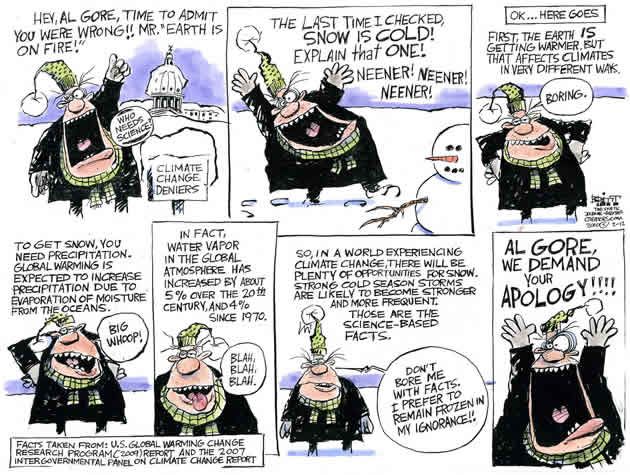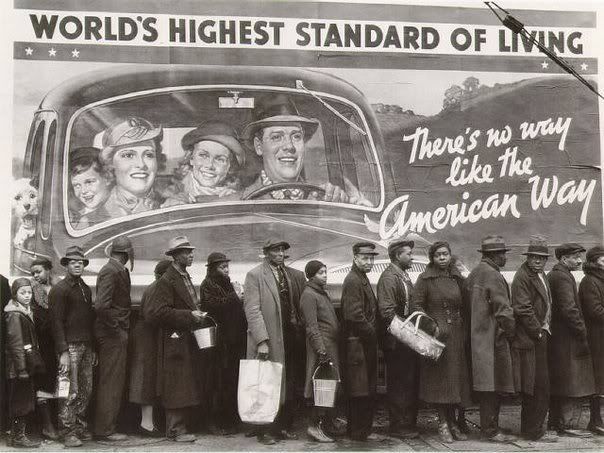If we were to be fair with ourselves, we would admit that, compared to most of the rest of the world, we really do have it good. As I say this, I recognize that statements such as these have been set forth multiple times to scold those who feel no desire to contribute to some worthy cause or endeavor. I’m not really out to highlight an issue or to request a donation, nor do I seek to appeal to your latent sense of guilt. Rather, I do ask for your sober contemplation. What I say now is designed to encourage discussion and discourage argument. We have enough back-and-forth as it is and we waste so much of our energies and ourselves in the process, passion better spent focused on different avenues.
All of us live in one bubble or another. The wealthier and more privileged we are, the greater and more exclusive the bubble. Growing up in the South, as I did, my parents and the parents of my peers most often had been born into solidly working class families. It had only been through their hard work and a resulting favorable economic climate that they’d had the ability to achieve social mobility, and in so doing scale one class up the proverbial ladder. Now that I live in a city where I encounter on a regular basis people my own age who have come from a long line of relative wealth, their views and mine are often as different as our priorities. I find it quite difficult to not be jealous and envious of, for example, their multiple trips abroad to Germany or their ability to attend an elite institution (or two) of higher learning. Still, I recognize that compared to many who live in the state of my birth, I had it very easy.
When we talk about Haiti, Darfur, or the Middle East, all the usual conduits to direct money and financial assistance fall easily in place. Yet, it is rather telling that it takes a catastrophe before we give even half a second to contemplate what life must be like for those in the Third World. Whether we admit it or not, a hierarchy of need exists, and the simultaneous blessing and curse of having our own basic needs met on an almost constant basis is that we can afford to have trivial, tedious arguments of insidious intent. And what to what overwhelming question does this lead us? It’s tough to say, really, but whatever it may be is frequently useless and thoroughly counter-productive.
As for our friends in dire need, their daily thoughts tend to be whether they have enough food to eat, or whether their lives will be in danger tomorrow, or how they’ll manage to raise their children in a harsh, unforgiving environment. To them, our arguments would seem not just ludicrous but also completely incomprehensible. Many have talked about this concept before, too, I recognize. If I believed we had gotten the message before now I wouldn’t bother reintroducing it. To be sure, I am aware that some do take this matter to heart. These are the ones who jump at the chance to volunteer to serve the less fortunate in other countries. I admire and appreciate their devotion. I do also take to heart the often-conservative criticism that we spend so much time and energy temporarily boosting the stature of devastated foreign countries while simultaneously neglecting our own poor and downtrodden. We would certainly go far to document the lives of our own needy beyond the occasional human interest story or anecdote. It’s not so much where we devote our energy as it is a question of our general mindset, which must not just be a single-minded and highly time-limited desire to cross off the phrase “humanitarian effort” from our Socially Conscious™ checklist.
The problem with bubbles, of course, is that bubbles isolate. They are impermeable. They keep information from getting out and in so doing keep necessary strategies and potential means of assistance in the hands of and for the use of a small, fortunate few. In discussion with those of other nationalities, I note that they have at times expressed no small frustration with us that we in this country seem to believe that nothing happens of much importance unless it happens here, or has some direct relevance to America and Americans. If our ultimate goal was complete equality, as we say it is, then we’d make a general effort to take into account the unique stories, news, and issues of other regions and countries of the world. Put this way, these very pertinent topics wouldn’t have to be consolidated into a tab labeled “World News” on one’s browser, or reduced to a niche interest targeted to a niche interest group.
What we deal with primarily is a discrepancy involving money and means. Here in Northwest DC, for example, some have spent years bickering about the location of a new library and whether it should be granted zoning rights and the ability to finally break ground. Common sense alone would have dictated that the existing temporary library space is much too small to accommodate the number of patrons who use its services, meaning that the construction of the building can’t get underway soon enough. Whereas, if I turn my attention towards the Southeast in the direction of Anacostia, I am faced with the blight and decay of dire poverty—with it a lack of basic services. Here, where I live, there are many restaurants and grocery stories I encounter on even the most modest of walks up and down the main thoroughfare. There, one is hard pressed to find more than one restaurant, and grocery stores are either severely limited, or nowhere to be found. This underscores how finding common means of comparison is difficult enough between people of similar interest, but in this way, both residents speak completely different languages.
I fail to take into account that many of us genuinely try to do the right thing. I’ve seen it for myself, many times. I’m not stating that one ought to drop everything, give all one has to the poor, and move to an impoverished country. But what I am saying is that once we leave the bubble, we don’t need the novelty of a country or region in crisis to recognize that until our efforts here on these shores are a success, we simply won’t have the infrastructure and the methodology in place to give better aid and assistance to foreign countries in need. If that on-going War on Poverty is ever won and won forever, it will start here, then spread to other places, not the other way around. Speaking American English in all its varieties and variations is tough enough, with so many regional, ethnic, and economic distinctions. Speaking the native tongue of another place is a daunting, if not completely impossible task until we’ve found our own means of translation.


